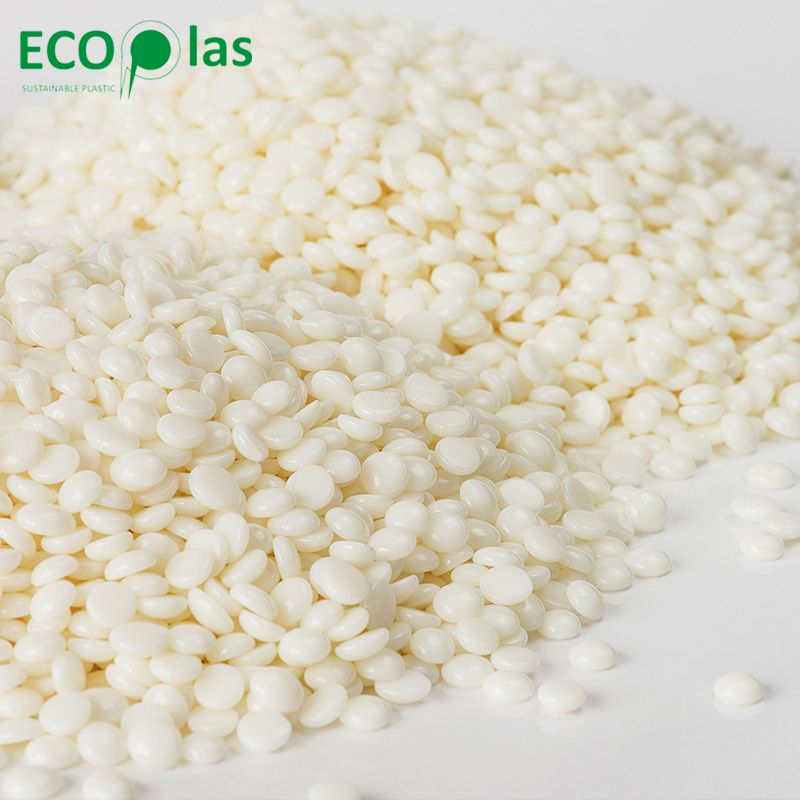Oct. 24, 2023
Rubber & Plastics
In today's world, sustainability and environmental responsibility are at the forefront of many industries. One crucial aspect of this global effort is recycling, and an innovative approach to this is PCR recycling. PCR, which stands for Post-Consumer Recycled or Post-Consumer Resin, is a recycling process that offers numerous environmental benefits while contributing to the circular economy. In this article, we will delve into what PCR recycling is and why it's a significant step towards a greener future.
Understanding PCR Recycling:
PCR recycling is a specific form of recycling that involves reusing materials or products that have already served their primary purpose and been used by consumers. These materials can include items like plastic bottles, packaging, textiles, and more. The goal of PCR recycling is to extend the life cycle of these materials, diverting them from landfills and incineration while conserving natural resources.
The process begins with the collection and sorting of post-consumer products. Once collected, these materials undergo a thorough cleaning and treatment process to remove contaminants, impurities, and any labels or adhesives. The cleaned material is then processed and converted into recycled resin or plastic, which can be used to manufacture new products.
Benefits of PCR Recycling:
Resource Conservation: PCR recycling reduces the demand for virgin raw materials. This, in turn, conserves natural resources, including fossil fuels used in the production of plastics, water, and energy. By using recycled materials, we reduce the environmental impact of extracting and processing new resources.
Energy Savings: The production of virgin plastics is energy-intensive. Recycling PCR materials consumes significantly less energy, leading to a reduction in greenhouse gas emissions and overall energy consumption.

Waste Reduction: PCR recycling diverts post-consumer materials from landfills and incinerators, reducing waste and helping to combat pollution. This, in turn, can alleviate the environmental burdens associated with waste disposal.
Lower Carbon Footprint: As the manufacturing of recycled plastics emits fewer greenhouse gases, the use of PCR materials contributes to a lower carbon footprint. It's an essential step in mitigating climate change and achieving sustainability goals.
Supporting the Circular Economy: PCR recycling is a key component of the circular economy, where products and materials are continually recycled and reused, reducing the need for new production and disposal. This closed-loop system is more sustainable and cost-effective in the long run.
Applications of PCR Recycling:
PCR recycling finds applications in a wide range of industries, including:
Packaging: PCR materials can be used to produce new packaging items like bottles, containers, and film. Many companies are adopting PCR in their packaging to meet sustainability goals and reduce environmental impact.
Textiles: The fashion industry is increasingly using PCR fabrics to create sustainable clothing and accessories. These recycled textiles are not only eco-friendly but also appeal to environmentally conscious consumers.
Construction: PCR materials are utilized in the construction industry for making items like pipes, decking, and building components. These recycled materials help reduce the environmental impact of construction projects.
Automotive: PCR plastics can be incorporated into car parts and components, reducing the carbon footprint of the automotive industry and decreasing the demand for new raw materials.
Electronics: The electronics industry uses PCR plastics in the manufacturing of casings and components, helping to reduce e-waste and lower the environmental impact of electronic devices.
Challenges and Future Outlook:
While PCR recycling offers numerous environmental advantages, it is not without its challenges. One significant challenge is the need for better collection, sorting, and cleaning processes to improve the quality of recycled materials. Additionally, consumer awareness and participation are crucial in ensuring the success of PCR recycling programs.
The future of PCR recycling looks promising as more industries and consumers recognize the importance of sustainability. Governments and organizations are implementing policies and initiatives to promote recycling and the use of recycled materials. Technological advancements and innovation are also driving the development of more efficient recycling processes.
In conclusion, PCR recycling is a sustainable solution that plays a vital role in conserving resources, reducing waste, and lowering the carbon footprint of various industries. Embracing RPCR materials and supporting recycling efforts can contribute significantly to a greener and more sustainable future for our planet. It is a step towards a circular economy where materials are continually reused and repurposed, reducing our reliance on finite resources and minimizing environmental harm.
If you are interested in sending in a Guest Blogger Submission,welcome to write for us!
All Comments ( 0 )